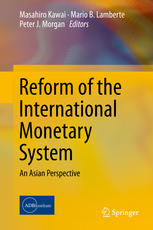

Most ebook files are in PDF format, so you can easily read them using various software such as Foxit Reader or directly on the Google Chrome browser.
Some ebook files are released by publishers in other formats such as .awz, .mobi, .epub, .fb2, etc. You may need to install specific software to read these formats on mobile/PC, such as Calibre.
Please read the tutorial at this link: https://ebookbell.com/faq
We offer FREE conversion to the popular formats you request; however, this may take some time. Therefore, right after payment, please email us, and we will try to provide the service as quickly as possible.
For some exceptional file formats or broken links (if any), please refrain from opening any disputes. Instead, email us first, and we will try to assist within a maximum of 6 hours.
EbookBell Team

4.1
80 reviewsBy providing a comprehensive overview of policy proposals for the international monetary system from an Asian perspective, this book aims to identify what innovations are needed to reform the international monetary and financial system to promote financial stability and sustainable economic growth for emerging economies. The book is organized into four parts. Part 1 discusses major theoretical and empirical issues related to reform of the international monetary system. Part 2 includes two chapters that present the recent developments and challenges for managing capital flows. Part 3 presents different perspectives on regional currency cooperation in Asia and Europe by assessing the evidence supporting increased currency coordination in Asia and by review issues of policy cooperation in the Euro area after the global financial crisis and their implications for Asia. Part 4 discusses emerging issues for regional/global cooperation and financial safety nets. The main inference of the book is that, in light of the drawbacks of the existing international monetary system exposed in the global financial crisis, along with other countries, Asian emerging economies should work cooperatively to reform and strengthen international monetary and financial policy. To do so, regional and global monetary cooperation is needed and financial safety nets should be strengthened to alleviate the impact of possible global financial crises. This will be one of the first books written about the global financial crisis and the on going the European sovereign debt crisis to comprehensively address the issues related to currency cooperation, based on the Euro area experience, with the specific implications for Asia.